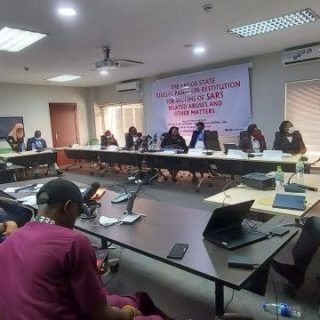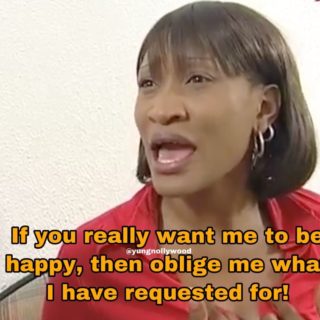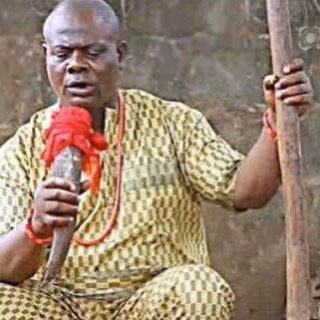Citizen is a column that explains how the government’s policies fucks citizens and how we can unfuck ourselves.
On October 19, 2020, the Lagos State Government set up the Lagos Judicial Panel of Inquiry and Restitution for victims of police brutality in Lagos state. But, judicial panels are not new in Nigeria. In fact, about 20 years ago, we also had a popular Oputa panel.
Read: #EndSARS: The Lagos Judicial Panel of Inquiry Is Now Sitting
In 1999, Nigeria’s former President Olusegun Obasanjo set up the Human Rights Violations Investigation Commission of Nigeria, popularly known as the Oputa Panel. Because Nigeria was just getting back to democratic rule, Obasanjo inaugurated a commission to investigate human rights violations during the military era of 1984 to 1999.
The panel later went ahead to investigate “gross human rights violations” dating back since as far as 1966. But unfortunately, the panel never officially made its report publicly available.
Inauguration of the panel
The Nigerian Human Rights Violence Investigations Commission, popularly known as the Oputa Panel was formally inaugurated on June 14, 1999, by the Statutory Instrument No. 8. of June 1999, pursuant to the Section 1 of the Tribunals of Inquiry Act of 1990 which gave the president the powers to constitute a tribunal.
Statutory Instrument No.13 of October 4, 1999, amended the terms of the commission to 1966, and it also included changes in the membership of the commission.
At the inauguration of the panel, Obasanjo charged the panel to review past authoritarian regimes and the human rights abuses “for the purpose of enhancing reconciliation, national cohesion, and entrenching the national democracy”.

The 6-member panel was led by Justice Chukwudifu Oputa, an eminent jurist and a retired Judge of the Supreme Court of Nigeria from 1984 to 1989. It also included well-respected members like Father Matthew Kukah, a former Secretary-General of the Catholic Secretariat of Nigeria and the current bishop of the Roman Catholic Diocese of Sokoto.
The job of the panel
The Oputa panel was authorised to investigate gross human rights violations between the 15th of January 1966 when Nigeria had its first military coup until May 28th 1999, the day before Nigeria got back to democracy under Olusegun Obasanjo.
The panel also had the authority to work towards the reconciliation of many communities that were in conflict with one another during the military regime.
The panel received over
More than 200 cases from those petitions were heard at publicly broadcasted hearings across the six geo-political zones of Nigeria, and public hearings lasted for more than a year.
Some of the most prominent hearings of the panel included the petitions about the death of Dele Giwa, the death of MKO Abiola, the purported coup to overthrow Sani Abacha in 1997, and the burning of Fela Kuti’s Kalakuta Republic on February 18, 1977.
Report of the panel
In June 2002, the Oputa panel presented an eight-volume report of 15,000 pages to the president, containing details of human right abuses during Nigeria’s military era. However, the government failed to release the report.
After six months, Obasanjo’s government further annulled the panel on the grounds that it was unconstitutional. This decision was reportedly based on a Supreme court case of 2003 where two former military leaders, Ibrahim Babangida and Abdusalam Abubakar went to court to challenge the powers of the federal government to set up tribunals of inquiry.
The Supreme Court later ruled that state governments, not the federal government had the power to set up tribunals of inquiry.
These former military leaders and top functionaries like Muhammadu Buhari, Ibrahim Babangida, Abdusalam Abubakar, Colonel Halilu Akilu and Colonel A.K Togun also failed to appear and testify before the panel when they were summoned.
Conclusions of the panel
The panel concluded that:
- The Nigerian military was responsible for gross human rights violations
- There was collaboration of powerful and rich civilians in preparation for numerous coups.
- That some state counsels in the Ministries of Justice violated fundamental rights of due process in attempts to protect perpetrators in specific, named cases.
The panel also recommended many things, including that victims of human rights abuses over the years were receive comepensation.
Though the report of the panel has still not been officially published, the report was leaked online in 2005 by the Nigerian Democratic Movement and the Civil Society Forum, two activist groups.
Read: SARS Was Created When The Police Ran Away
We hope you’ve learned a thing or two about how to unfuck yourself when the Nigerian government moves mad. Check back every weekday for more Zikoko Citizen explainers.
COMPONENT NOT FOUND: donation




